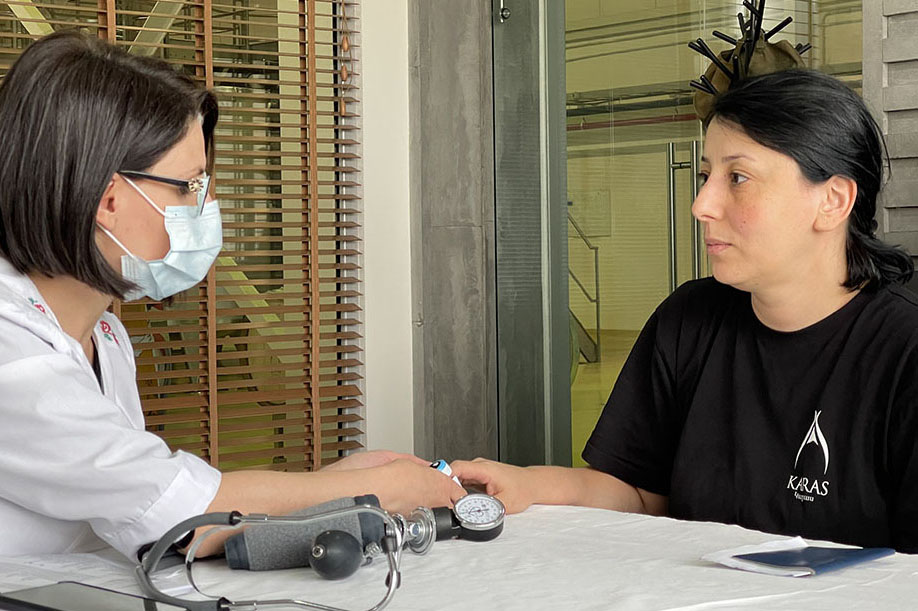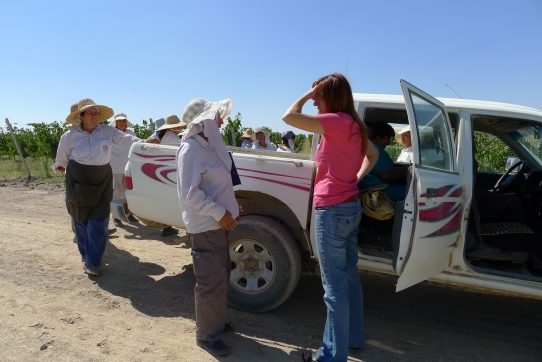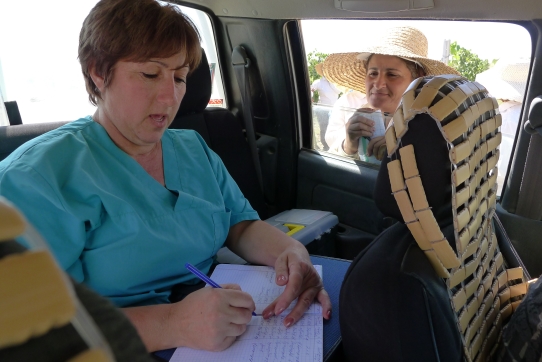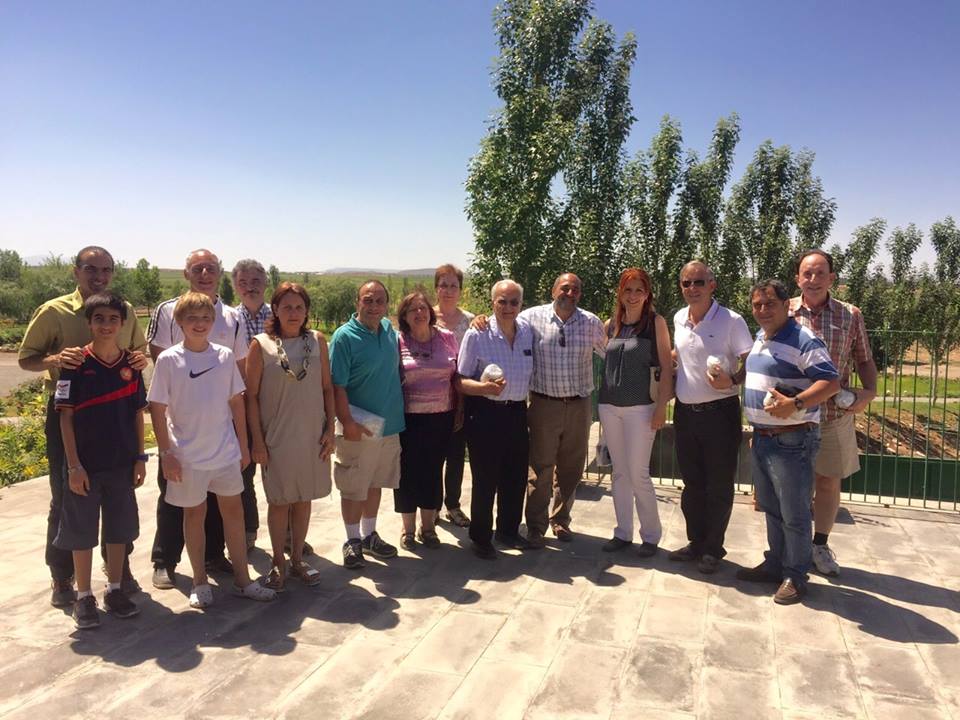“I would have gone blind without their help,” stated Gagik Aghajanyan when reminded of the cataract surgery in both eyes that he had at age 37. At that time, he was working at Tierras de Armenia (TDA), a wine company in the province of Armavir where FIDEC Armenia has operated an occupational health program since 2008. “Doctors treated me really well. At the hospital, they gave me medications and took care of everything else,” Aghajanyan reported. Many other rural workers as himself were able to access medical services that were previously unattainable. This experience has been replicated by two other companies: Converse Bank and Zvartnots International Airport.
“From the start, this program was designed to improve the health and quality of life of TDA employees,” explained Narine Hayrapetyan, Executive Director of FIDEC Armenia. They get a medical examination when they are hired and regular check-ups from then on. Acute medical conditions and chronic diseases are treated attending to each person's needs.
If medium-to-high complexity treatments or operations are required, rural workers are taken to specialty medical centers in Armavir or Erevan. “Moreover, a nurse provides on-site first aid at the workplace,” Hayrapetyan added. Farmers also get free medications, vaccines, and information that promotes healthy lifestyles. FIDEC Armenia helps monitor water and food safety as well.



Healthcare personnel examine workers in a medical office or at the vineyard.
This program was customized for TDA, who funds it in full. Thus, all services are free for employees. This investment has had a great impact for over a decade:
- Labor productivity increased.
- Absenteeism decreased because the medical examination performed on being hired by the company enabled the treatment of chronic conditions, which in turn improved the person's health and performance.
- Work was organized efficiently by following FIDEC Armenia's recommendations about the physical fitness of each employee for the different tasks.
- Workers received health recommendations through educational activities.
- Foodborne and waterborne infectious disease outbreaks were prevented.
Medical check-ups upon hiring and regular follow-ups proved to be an effective strategy to detect diseases as early as possible or, even, to prevent them, Hayrapetyan stated. She added: “Treating the conditions diagnosed ensures employees get the appropriate treatment in specialty clinics so they can go back to work as soon as possible, always performing tasks suited to their health condition.”
Thirteen Years, in Figures
12,000
Conditions treated
152
Hospitalizations
117
Surgical procedures
79
Patients with chronic diseases
The Pandemic as Opportunity
In April 2020, FIDEC Armenia extended the reach of its occupational health program to include Converse Bank and Zvartnots International Airport, two other Argentine-Armenian companies like TDA. In these three cases, the Foundation helped prevent the spread of COVID-19 and mitigate the consequences of the pandemic. They also helped develop and implement epidemiological measures to prevent coronavirus dissemination.
Moreover, FIDEC Armenia designed a survey to determine how much employees knew about the COVID-19 vaccines and their attitude towards them. This survey was answered by 800 Converse Bank employees and 120 TDA employees. The results led both companies to ask the Foundation to hold a series of virtual and in-person activities to inform employees about COVID-19 and the benefits of vaccination against the disease, and to answer questions about the risks of vaccination. During September 2021, FIDEC Armenia provided vaccination in the workplace for 92 Converse Bank employees and 52 TDA workers.
“Our Foundation’s occupational health program is a unique model of corporate social responsibility in Armenia. It has improved access to healthcare services, increased awareness of the importance of disease prevention, and generated the positive attitude needed to achieve its goals,” Hayrapetyan concluded.

FIDEC Armenia members and collaborators during the 2015 visit to Tierras de Armenia, in the Armavir province.